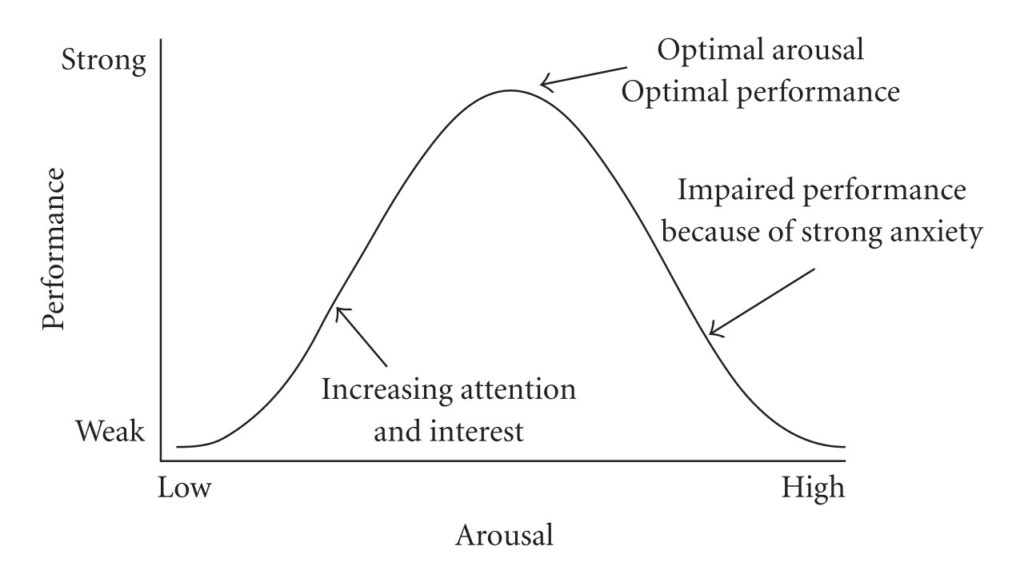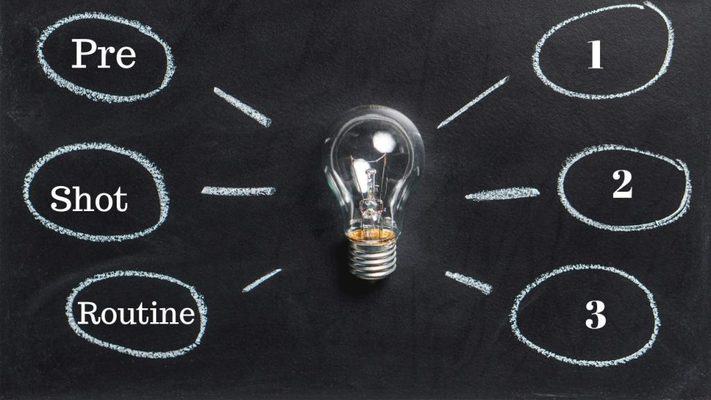How to handle pressure, “having bottle,” “playing under the cosh”. This is a basic introduction to the mental side of pool.
The way we think affects the way we play pool. The emphasis on the role of our mind becomes greater as we improve our game and move up the rankings.
It has been said that at the professional level pool is 5% physical and 95% mental, but, more often than not, the occasional bar room player probably has these figures reversed.
Every successful professional sportsman or woman has learned how to handle the pressure. Pool is no different, mental fitness is common to all sports.
So what do we mean when we refer to handling the mental side of the game? It’s not so much a separate function as it is a need for our physical and mental components to work together.
Controlling the Mind is the Way to Peak Sports Performance.
When learning about billiards novice players are concerned with the mechanics of the stroke and the movement of the balls around the table.
How we learn skills affects our perception of the game and is a key element in performance related issues which can affect your game to some extent as you progress in your sport.
When we learn a skill, we move from position 1. to position 4. on the chart to the left.
This transition can take several days to a lifetime to complete and involves hours of dedicated practice and repetition to the point where we no longer need to think about what we are doing.
If you drive a car you will be familiar with this process as you moved from learning the highway code in step 1. through to driving talking and listening to the radio at the same time in step 4.
In other words, the car just drives itself with no conscious thought or intervention coming from the driver.
Playing under pressure well in any sport at a high level requires confidence. We also need to feel comfortable at an optimal level of arousal and be excited about the game & challenge ahead of us in order to exhibit our peak performance. It is important that we are not anxious or fear failure in any way at all.
In Order To Handle the Pressure-We Need To Be Aware?
Mental pressure is a reaction to a situation or expectation, either yours or someone else’s.
Pressure can be real or imagined.
Possible pressure situations:
- In a match where you are easily supposed to win but are struggling.
- Where you have a big lead but start to lose games.
- You are on the live stream table and feel self-conscious.
- The match is outside of your usual comfort zone.
How to Handle the Pressure Side of Pool/Brain side of Billiards?
Is it thought?
Determination?
Is it intense concentration?
The will to win?
These are all important elements, yet not the whole picture, although one might think so after observing the style of play and body language at a local competition.
It is being “in stroke”. Being “in the zone” or “unconscious”.
These are the terms used by pool players to describe the desired state of mind.
Learning how to handle pressure should be a part of practice.
It is an effortless effort. Like the game is playing itself. Everything feels good and you are completely relaxed. The shots seem to play themselves and every choice is the right one. The pockets look like huge buckets and even tough run-outs are a piece of cake.
If you have been there you know what I mean. Perhaps you have experienced this state once or twice but are not able to turn it on at will. This brings us to our next question…. “Can we learn to achieve the zone or will it remain a mystery only to be obtained by a few lucky successful players?”.
It is a skill and skills can be learned by anyone with the right knowledge and appropriate practice.
What is Actually Happening When a Player Breaks Down Mentally?
When a player has not learned how to handle the pressure in extremely important match situations, a number of things start to happen. The exact process will vary between individual players, their personalities and specific situations. There are however some common threads that will help us to understand what takes place and how to rectify the situation and regain control.
There is usually a trigger:
Pre match-nerves and anxiety building up in the mind before an event.
- Television appearance
- Large audience
- Highly skilled opponent
- Moving up in competition class
- First final match appearance
During a match-loss of control during actual competition.
- Verbal criticism
- Overwhelming scoreline
- Jeering or laughing
- Being totally out played
- Fear of losing

The symptoms of a mental breakdown are subtle in the beginning but will rapidly disrupt your pool performance.
All of the scenarios above are different but they are all based in FEAR.
Fear and apprehension increase the anxiety level to a point where performance declines causing more fear and anxiety. In our attempt to control our feelings we slow down and try to think more about the game and our tactics. However, we have already learned that peak performance comes from the unconscious mind and so the cycle of decline continues.
Confusion often sets in and starts to build up as we desperately try to remain in control and look unrattled to our opponent and spectators but it’s already too late. We are way past the point of no return now which will manifest itself as humiliation and embarrassment possibly leading to anger and eventually to complete capitulation and surrender.
Giving up completely in these situations sometimes appears to be the only way to salvage some pride,
after all ……“I wasn’t even trying so this loss means nothing.”
I have heard of players giving up playing pool or their chosen sport completely after one of these experiences because they never want to feel that way again.
How do players prevent this from happening?
The first thing to do is to realize and acknowledge that you have a problem!
(Privately of course, no need to tell the world about it.)
This may seem like a cliche but it’s true.
The sooner you come to terms with this the quicker you will accept the solutions and be able to move on to new levels.
- Learn to recognize the signs of anxiety developing
- Have a mental recovery plan in place for emergencies
- Learn how to anchor
- Set reasonable performance and personal goals
- Visualize your match situations, practice winning
- Develop a solid pre-shot routine
Developing a solid reliable pre-shot routine is Essential
The first thing to do is develop a pre-shot routine.
This is the routine that you will go through prior to every shot. Watch some professional pool players before the shot, tennis players before the service, or basketball players at the free-throw line.
What do they all have in common? Their pre-shot routine. No deviation whatsoever.
It’s a routine, done the same way every time. If they get even the slightest bit distracted the players start all over again, this is most obvious when we look at the tennis serve. The pre-shot routine gets the player ready for action. Repeating the same motion over and over coordinates the mind and the body.
This tells the brain what you are about to do, gets it ready to execute the skill that is stored away in your muscle memory from years of practice.
Beautiful, effortless.
As pool players and golfers we have a great advantage over tennis players and soccer players because we only strike the ball when it is stationary or not moving. This gives us the opportunity to use our pre-shot routine on every shot that we take. That gives us time to prepare mentally and physically for every stroke.
Form a pre-shot routine that fits in with your style, rhythm of play and personality.
If you are not sure about it borrow a routine from another successful player to start with and make your own adjustments if necessary, but just make sure that you get one!
Your routine should include definite start and finish trigger points that communicate “I am ready to shoot now” to your mind and body. Then once you step into the shot and take up your stance there must be no other verbal communication or “chatter” going on inside your head.
You have already decided on the shot and visualized the successful end result. The only action that is left is to execute the skill. If you are disturbed by anything including your own mind, stand up immediately and go through your pre-shot preparations again.
That is what it takes to master the mental side of pool.



